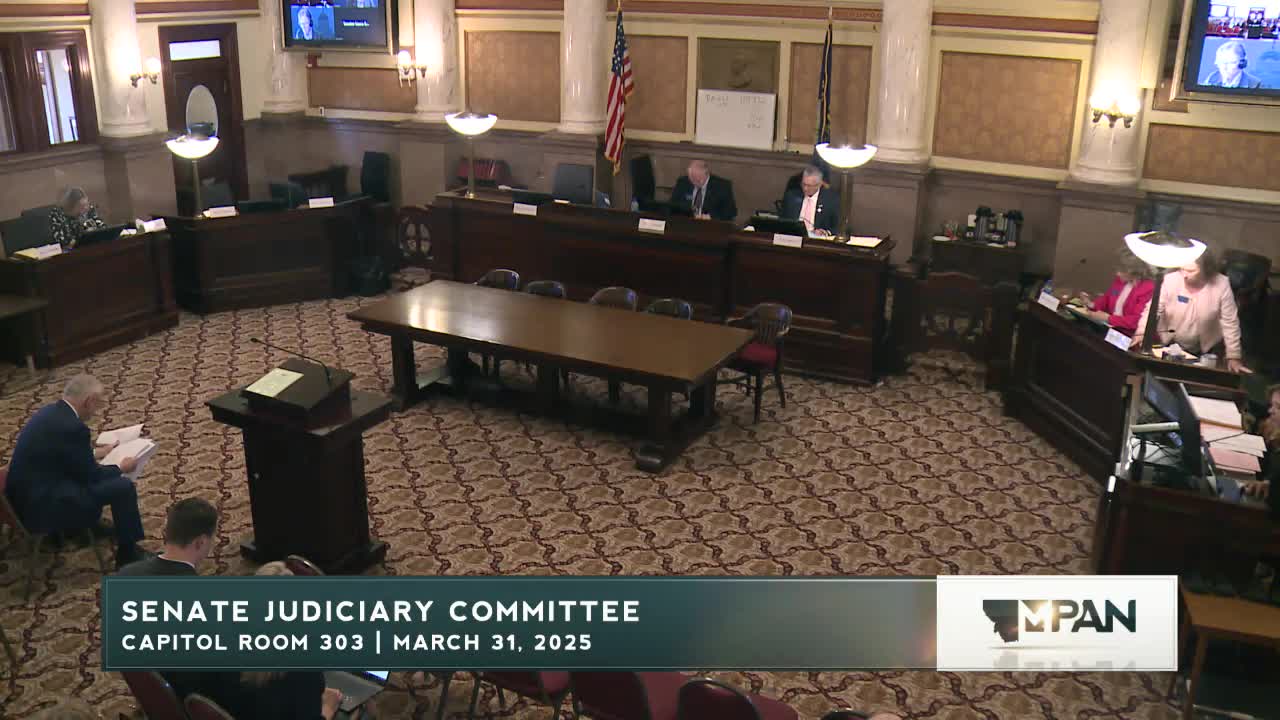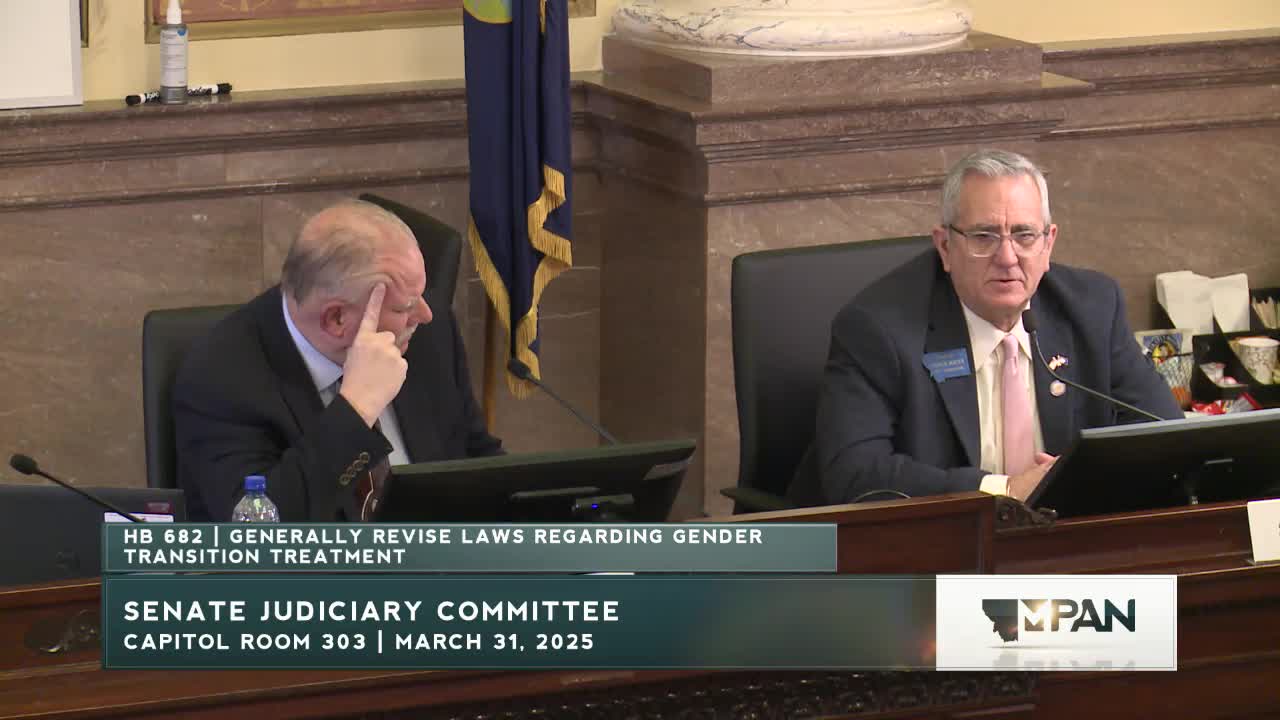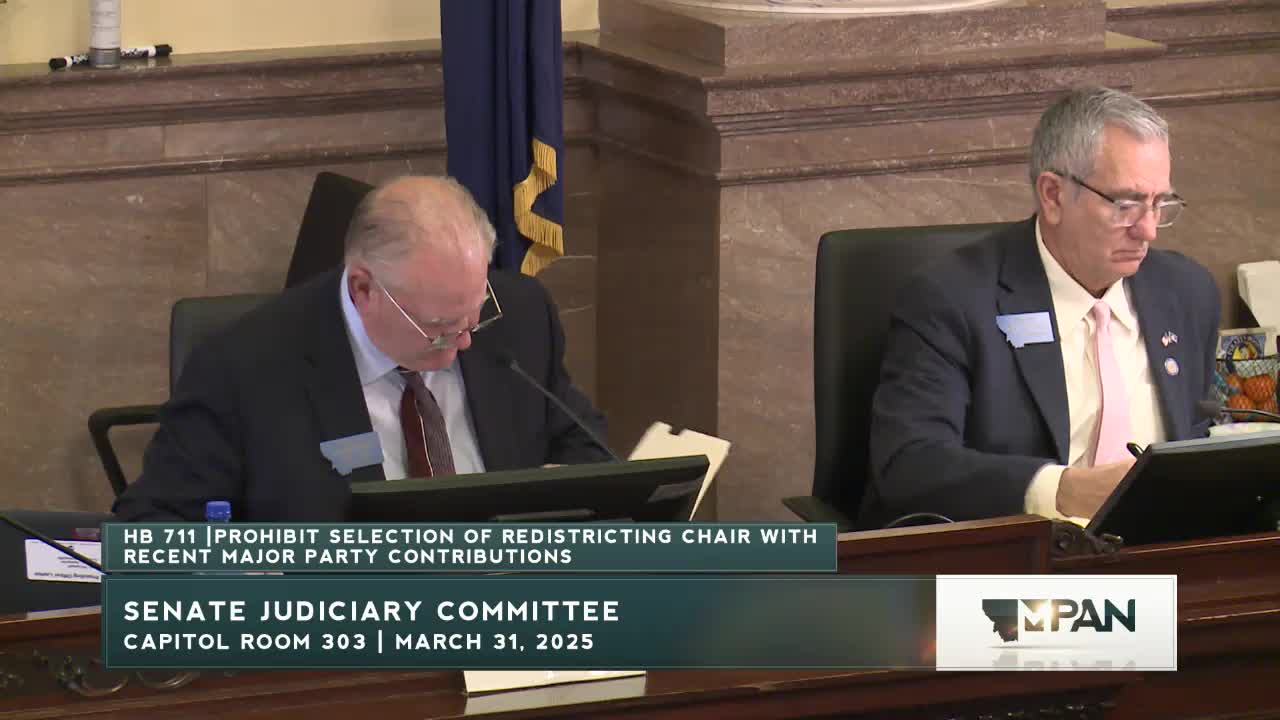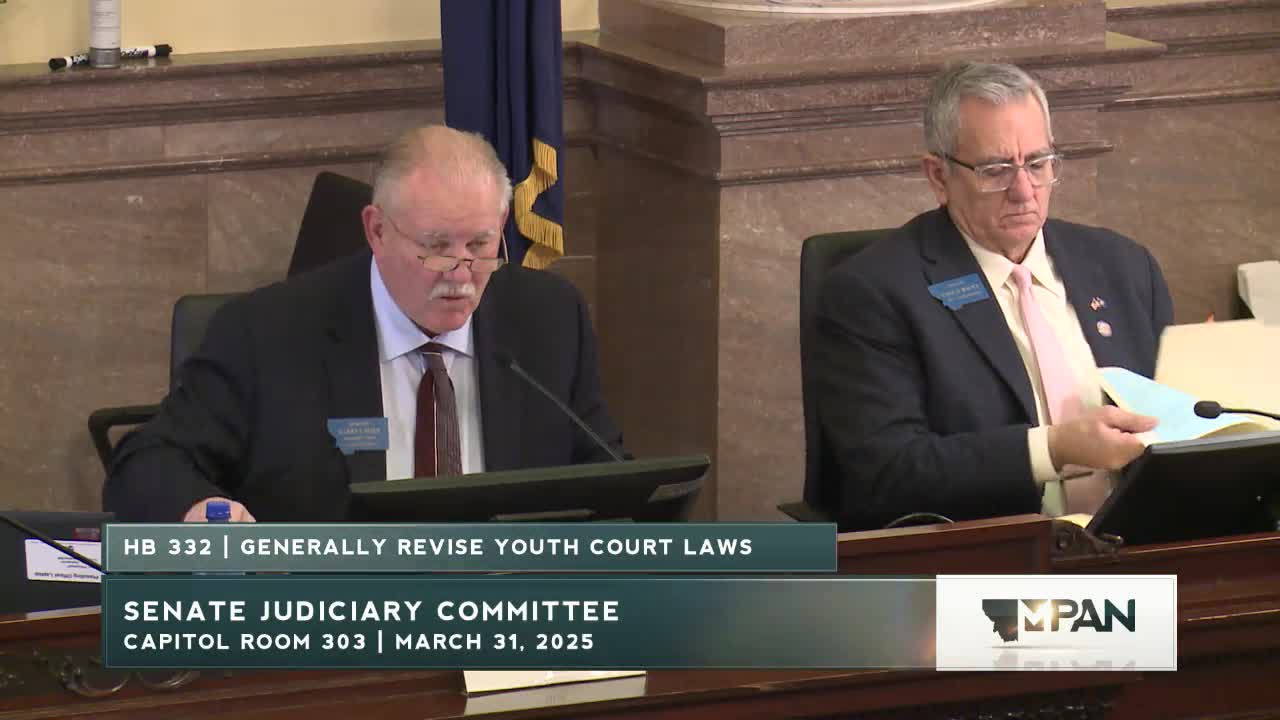Article not found
This article is no longer available. But don't worry—we've gathered other articles that discuss the same topic.

Heated testimony as committee considers bill to extend legal recourse and insurance coverage for minors harmed by gender-affirming care

Montana bill would update Youth Court Act, expand offenses that can transfer juveniles to adult court; debate centers on rehabilitation vs. public safety

Senators, department and county attorneys describe negotiated amendments to civil and forensic commitment statutes aimed at easing hospital backlogs and clarif

Bill would criminalize possession of contraband in prison, expand penalties for assaults with bodily fluids and add drone prohibitions; prosecutors, corrections

